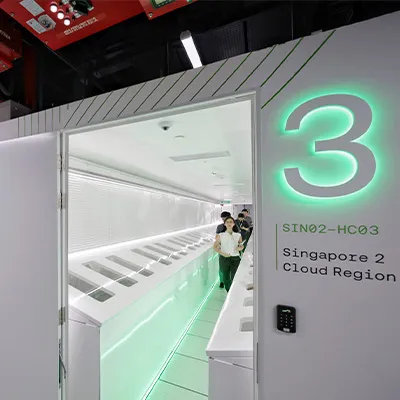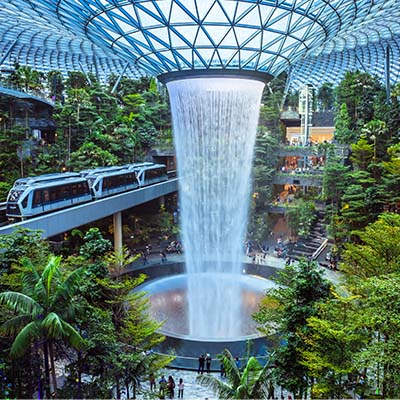We are on the cusp of the Fourth Industrial Revolution as technology continues to evolve at an exponential rate, transforming the way companies work and connect.
Unlike previous revolutions which focused more on power generation, manufacturing automation and computerisation, this revolution relates more to the transcendence of technology as it blurs the boundaries between the physical and digital worlds.This revolution is a timely call to action for companies to use technology to do good. So what are the top three technology trends that businesses can tap to build towards a more sustainable future going into 2020?
Application programming interfaces (APIs)
APIS are not new and have been predominantly used to facilitate open banking, where businesses and their partners can share data within an ecosystem in real time, creating an instant and seamless journey experience. But the scope of APIs has grown and is no longer limited to business solutions. It also opens the doors for enabling companies and banks to drive sustainability through financial inclusion.
For instance, DBS launched its first multi-tier financing facility on a China-based logistics blockchain platform earlier this year that allows small- and medium-sized enterprises (SMEs) to get faster access to trade financing. Leveraging the bank's APIs, DBS is able to offer digital trade financing services to SMEs in the ecosystem within 24 hours. This is significant as more than half of SMEs globally tend to face rejection by financial institutions for their trade finance needs, contributing to the world's trade finance gap of US$1.3 trillion.
Artificial intelligence (AI) and Internet of Things (IoT)
Leveraging AI and IoT discharges a power duo in the push for greater sustainability, especially in the area of circular procurement for manufacturing-type businesses.
Circular procurement is a "greening approach" by which companies take extra effort in the purchase of goods and services to promote closed energy and material loops within supply chains, to minimise and avoid negative environmental impact and waste creation. For instance, by combining both technologies, manufacturers can develop AI-enabled systems to monitor their hardware which are tagged with RFID chips as identifiers.
The system can then detect and notify the business when an item, for instance a chip in a laptop, has turned faulty, and inform the business and its customer that it needs to be replaced.
This in turn helps enhance customer retention, and at the same time, allows the faulty products to be recycled or reused by the business. This not only helps the company save on costs to manufacture new products, but also cuts down waste output and reduces its carbon footprint.
Blockchain
The allure of blockchain is its ability to offer trust and efficiency to multiple parties in an industry ecosystem by recording data on a fully transparent shared ledger that is distributed across all participants instantly.
As an example, in the agricultural industry, there is a general lack of visibility in the transfer of goods from farmers to wholesalers, and thereafter to retail outlets, before reaching the end consumer.
By deploying blockchain, agricultural businesses can now transform their supply chains, and provide added traceability, beginning at the farms and extending throughout the transportation process. It can also track how farmers grow their crops and inform customers if products are grown and sourced sustainably.
Against this backdrop, DBS partnered with Agrocorp to develop a blockchain trade platform that has connected close to 5,000 Australian farmers with Agrocorp's restaurant and supermarket customers.
Designed to provide real-time pricing of agricultural commodities such as grains, delivery updates, and automated trade finance approval to all participants on the blockchain, plans are under way to expand offerings to include a sustainability focus.
As next steps, Agrocorp will be adding source information about the land, water and types of fertiliser used by farmers to grow the commodities traded. Such features will help address problems such as deforestation in Asia, a key cause of carbon emissions in the region.
To conclude, businesses and, collectively, industries will play a major part in determining the success of global ambitions to build towards a sustainable future. While it takes time for governments and legislators to reach consensus on complex global issues, businesses can start to make real and impactful changes in the way they work today.
The writer is head of Digital, Institutional Banking Group, DBS Bank.
Copyright © 2019 Singapore Press Holdings
This article was written by RAOF LATIFF from The Singapore Business Times and was legally licensed through the NewsCred publisher network. Please direct all licensing questions to legal@newscred.com.







